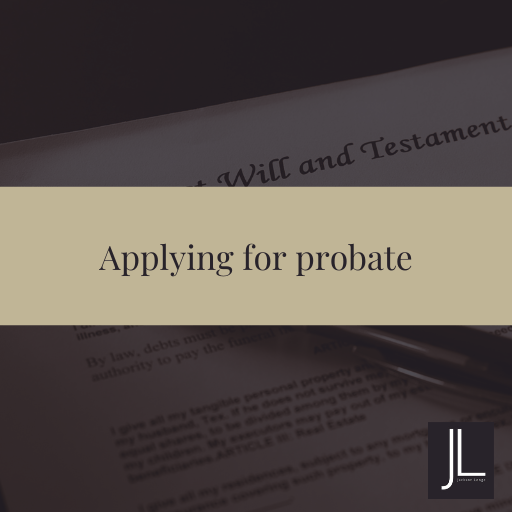
You may have to apply for probate if you are named as an executor in someone’s Will. Having applied for probate, you will have the authority to share the deceased’s estate according to their Will’s instructions. It is not necessary to apply for probate in all cases.
Do I need to apply for probate?
Depending on the value and contents of the deceased’s assets, you may not need to apply for probate. To identify whether or not probate is required, you should find out how much the assets are worth and how the assets were held. The assets could have been held in the deceased’s sole name or joint names with someone still alive.
In a ‘small estate,’ probate is unlikely to be needed. However, there is no set limit on what constitutes a ‘small estate’. Each bank and financial institution have different limits and approaches regarding probate. Some have a threshold as low as £5,000, whereas others can have their figure set at £50,000. Other banks set other figures, with some suggesting that if the overall value of an estate is £15,000, probate is required, whereas others state that probate is only required if there is £15,000 in the individual account.
Find out more about bank limits for probate here.
What happens if I don’t apply for probate?
Probate is required to access and transfer the assets and finances of the deceased. Officially, probate gives a person legal authority to access the deceased’s estate; without this access, the assets cannot be distributed according to the wishes of the Will.
Probate enables a person to shut down bank accounts, sell or transfer property ownership, transfer pensions, cash, and other investments. Without probate, these assets will remain unaccounted for, often against the contents of the deceased’s Will.
Click here to learn about the top things you should consider when writing your Will.
Do I need a solicitor for probate?
It is possible to deal with probate yourself, provided you are familiar with the associated legal process. However, we always recommend consulting an experienced and competent solicitor to assist you. Probate can be time-consuming and complex, especially if you are uncertain of the steps involved.
Furthermore, dealing with probate can be extremely risk because you could be held financially liable if anything goes wrong.
Dealing with the death of a loved one often requires advice and guidance from a knowledgeable external party, such as a compassionate solicitor, to ensure that you are doing the right thing throughout the process.
At Jackson Longe Solicitors, we would be happy to guide you in understanding whether or not you need probate.
To speak to our probate and estate administration solicitors in Richmond, Surrey, please call 0208 332 2069 or email info@jacksonlonge.co.uk.
What happens when the assets are joint?
As previously mentioned, it is possible that the assets of the deceased were held jointly, perhaps by a spouse or civil partner. Probate may not be required in this case, regardless of the estate’s value. Provided the joint owner of the assets is still alive, they will automatically pass over to the other person. So, for example, if your husband dies and you have joint ownership of a property, the ownership will automatically transfer into your name without the need to go through the probate process.
There are other terms to what happens if assets were held in joint names; please get in touch with Jackson Longe Solicitors; we would be happy to help you understand what should happen in your circumstance.
Probate Solicitor Near Me
Jackson Longe Solicitors understand how stressful losing a loved one can be, so we have a team of compassionate and professional legal professionals to help you.
Please call 0208 332 2069, email info@jacksonlonge.co.uk or fill in this enquiry
for.